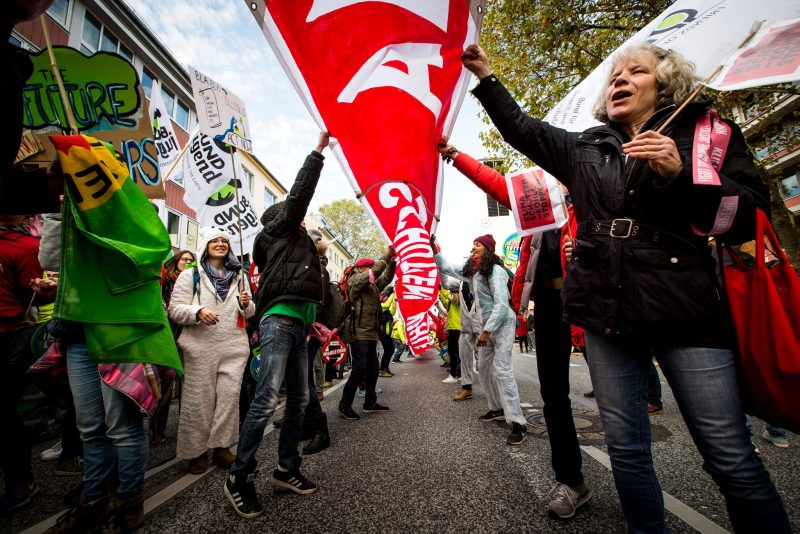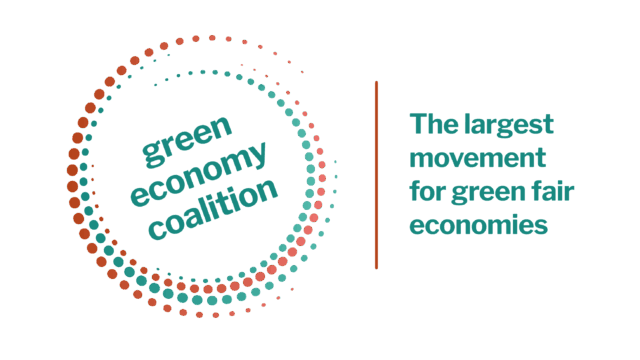Initial reflections on the Pact for the Future
Our Director of Engagement is back from New York and shares her thoughts from the latest UN sustainability summit

Having just returned from a week in New York City, our Director of Engagement Jean McLean shares her thoughts from the UN Summit of the Future. What went well, and what’s going wrong?
Beyond GDP
The now-finalised UN Pact for the Future contains a commitment and a mechanism to “develop a framework on measures of progress on sustainable development to complement and go beyond gross domestic product.”
This is promising stuff. At GEC we have long advocated for the need to get beyond GDP and recognise the value of economic indicators that account for nature and social progress. We need metrics that promote green, fair and long term wellbeing – something that mere GDP is woefully incapable of doing.
“ There seems to be an ever-increasing divide between the reality of warfare, climate disaster and political breakdown on the one hand, and the sweeping rhetoric of UN development policy on the other.”
An outcome of the Summit is that an independent high-level expert group has been established to develop recommendations for a “limited number of country-owned and universally applicable indicators of sustainable development”. A United Nations-led intergovernmental process will consider the recommendations of this group.
Of course, this is very much in the realm of the non-binding. But at least it’s a start.
Care Economy
The final version of the Pact recognises the need to “significantly increase investments to close the gender gap, including in the care and support economy” as well as the importance of “dismantling inequalities in the care economy”, though it includes no specific no mechanisms to do this, or suggestions for how it can be achieved.
Indeed, one major disappointment from the pact is that gender equality is siloed off as its own separate issue, rather than recognised holistically as a major intersectional issue that catalyses and compounds other issues, such as education, decarbonisation, disaster recovery and so on.
Fossil Fuels
The Pact reinforces existing climate commitments but misses a crucial opportunity to raise ambition to lower greenhouse gas emissions within the current decade.
At least the Pact recognises the need for deep, rapid and sustained reductions in greenhouse gas emissions, and critically uses the language of “transitioning away from fossil fuels in energy systems, in a just, orderly and equitable manner, accelerating action in this critical decade.” Again, it’s a rhetorical commitment if nothing more, but it sets a precedent for future negotiations to build from.

As expected, there was little to no progress on climate finance – despite the brief flurry of activity at this time last year following the Bridgetown Initiative.
Tax
Cooperation around improving inclusive and effective tax revenue was high on the agenda at the Summit. But it remains to be seen who will hold the pen when it comes to setting out the international framework for managing these processes. The two lead candidates are the UN itself - being relatively more inclusive and democratically accountable - or the OECD, essentially a club of rich countries who have less to gain than most from effective international tax reform. Civil society obviously prefers the UN to take the lead, but member states in the OECD are lobbying hard. Expect more jostling between national governments, the UN, the OECD – and much more direction from the G20 under Brazil and then South Africa’s leadership.
Debt
Debt and debt relief proved to be a key theme across the finance discussions at the Summit. There was much talk of “unsustainability and vulnerabilities,” as well as the need “to facilitate collective action to prevent debt crises, and facilitate debt restructuring and debt relief, when appropriate.” But this falls far short of the action needed to address the calamity that spiralling national debt is creating for people and politicians around the globe.
Indeed, data from the World Bank shows that in 2023 the net financial flows from rich countries to poor actually reversed. This means that poor countries – which are already suffering the worst impacts of climate change, and will continue to do so – are now paying more to rich ones in debt interest than they are receiving in aid.
The UN is responding to this as only the UN can: through committees and focus groups. It has invited the International Monetary Fund to review debt architecture, apparently unironically. And it’s called on the G20 Common Framework for Debt Treatments to enable effective, timely restructuring processes, apparently unaware that the countries of the G20 are the chief beneficiaries of all these debt repayments and stand to gain little from sacking them off.
Other measures called for include climate-resilient debt clauses when lending to climate-vulnerable countries, and greater use of debt swaps for climate or nature. Civil society meanwhile were calling for fundamental economic transformation that is gender just and antiracist.
Conclusion
In today’s geopolitical context seems to be an ever-increasing divide between the reality of warfare, climate disaster and political breakdown on the one hand, and the sweeping rhetoric of UN development policy on the other. This instability is especially apparent as the failure and violence of our economic model is increasingly exposed through crises.
In this context, the usual cliché of “necessary but insufficient” applies. The Pact for the Future is certainly an achievement; but given the scale of the challenges we’re facing, it seems hopelessly insufficient for the task. However, one thing did seem clear from my time in New York: the greatest potential for historic change is coming from the fringes, rather than multilateral institutions like the UN. Civil society was out in force at the Summit, calling for justice, deep equality, and transformational long-term change. If nothing else, the Summit of the Future has created an organising structure for this mobilisation to continue.
- Jean McLean, GEC


